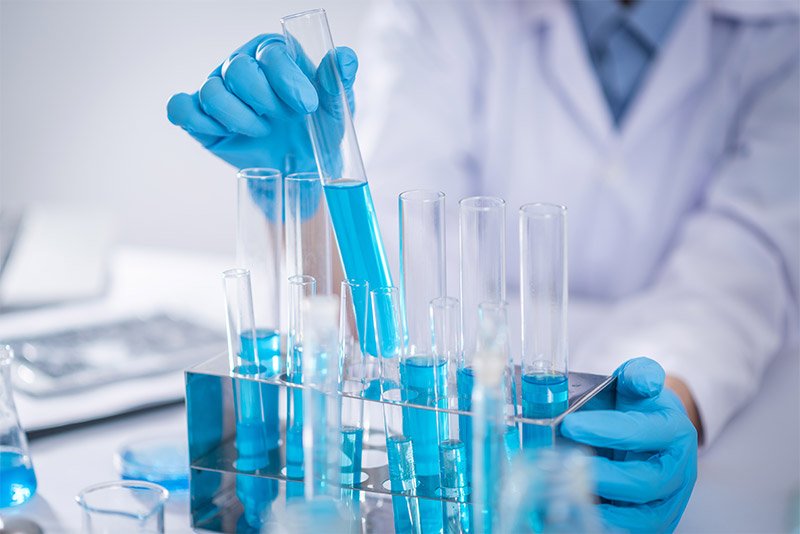Einführung
Natural fatty alcohols, often overlooked in the realm of skincare and industrial applications, stand as versatile compounds with remarkable benefits. Derived from various natural sources, these alcohols possess intriguing properties that contribute to skincare routines, hair care products, and various industries. Understanding their origins, benefits, and debunking myths surrounding them unveils their significance in today’s diverse applications. In this article, we delve deep into the world of natural fatty alcohols, exploring their sources, benefits, misconceptions, and their impact across different sectors.
What Are Natural Fatty Alcohols?

Natural fatty alcohols are organic compounds derived from fats and oils present in both plant and animal sources. These alcohols are formed through a process called hydrolysis, where fats are broken down into fatty acids and glycerol. Fatty alcohols are produced by reducing these fatty acids, resulting in alcohols with various carbon chain lengths.
These compounds typically exhibit a chain of carbon atoms, which can vary in length from a few to over 20 carbon atoms. This chain length variation contributes to the diverse properties and applications of natural fatty alcohols.
Due to their structure, natural fatty alcohols possess emollient and moisturizing properties, making them valuable in skincare and hair care products. They act as excellent emulsifiers and thickeners in cosmetic formulations, contributing to their widespread use in the beauty and personal care industry.
Moreover, these alcohols find applications beyond cosmetics, such as in pharmaceuticals, detergents, and industrial processes, owing to their surfactant and cleansing properties.
The natural sources of these fatty alcohols include plant oils like coconut oil, palm oil, and shea butter, as well as animal-derived sources like tallow and beeswax. The extraction methods vary depending on the source, with some requiring simple extraction processes while others involve more complex procedures.
Sources of Natural Fatty Alcohols
Natural fatty alcohols are sourced from a diverse range of natural materials, encompassing both plant-based and animal-derived sources.
Plant-Based Sources:
- Coconut Oil: Renowned for its richness in fatty acids, coconut oil is a primary source of fatty alcohols like lauryl alcohol and myristyl alcohol.
- Palm Oil: Extracted from the fruit of oil palms, palm oil contains fatty acids utilized in producing fatty alcohols with various chain lengths.
- Shea Butter: This natural fat extracted from shea tree nuts yields fatty alcohols, such as cetyl alcohol and stearyl alcohol, known for their emollient properties.
- Jojoba Oil: Although not a true oil but a liquid wax, jojoba oil contains esters that can be processed into fatty alcohols.
Animal-Derived Sources:
- Tallow: Rendered fat from animal tissues, especially beef or mutton, serves as a source for fatty alcohols like cetyl alcohol and stearyl alcohol.
- Beeswax: Produced by honeybees, beeswax contains esters that can be converted into various fatty alcohols.
The extraction process varies based on the source. Some, like coconut oil or palm oil, undergo straightforward extraction methods, while others, such as tallow or beeswax, involve rendering or processing to obtain the desired fatty alcohols.
These diverse sources provide raw materials for the production of natural fatty alcohols, catering to different industries that leverage their unique properties in various applications, ranging from skincare and hair care to industrial and pharmaceutical sectors.
Benefits in Skincare
Moisturizing Properties
These alcohols exhibit exceptional moisturizing properties, effectively sealing moisture into the skin. They create a protective barrier, preventing dehydration and enhancing skin hydration levels. This is particularly beneficial for individuals with dry or sensitive skin, providing relief and promoting a smoother, more supple complexion.
Emollient Effects
Fatty alcohols contribute to the softness and smoothness of the skin by acting as emollients. They aid in smoothing rough patches, soothing irritated skin, and improving the overall texture, making them valuable ingredients in creams, lotions, and balms.
Barrier Enhancement
By reinforcing the skin’s natural barrier, natural fatty alcohols help shield against environmental pollutants and harsh weather conditions. This barrier function assists in preventing moisture loss, reducing the risk of skin sensitivity, and maintaining skin health.
Non-Comedogenic Nature
Many natural fatty alcohols possess non-comedogenic properties, meaning they do not clog pores. This makes them suitable for acne-prone skin, as they moisturize without exacerbating breakouts or causing pore blockages.
Compatibility Across Skin Types
One of the remarkable features of these alcohols is their compatibility with various skin types. From dry and sensitive to oily and combination skin, natural fatty alcohols are generally well-tolerated, offering benefits without triggering adverse reactions.
Product Stabilization
In skincare formulations, fatty alcohols contribute to the stability and consistency of products. They act as emulsifiers and thickeners, ensuring the uniform dispersion of active ingredients and enhancing the overall efficacy of skincare formulations.
Role in Hair Care
Conditioning Properties
Fatty alcohols act as excellent conditioning agents for the hair. They penetrate the hair shaft, providing moisture and enhancing the hair’s softness and manageability. This conditioning effect helps in detangling hair, reducing frizz, and imparting a smoother texture.
Softening Effects
These alcohols contribute to softening the hair strands, making them more pliable and easier to style. By smoothing the hair cuticles, they promote a sleeker appearance and improve the overall feel of the hair.
Emulsifying Capabilities
In hair care products like shampoos and conditioners, natural fatty alcohols serve as emulsifiers, assisting in the blending of water and oil-based ingredients. This property ensures the uniform distribution of beneficial components, enhancing the performance of hair care formulations.
Compatibility with Scalp Health
Fatty alcohols are generally gentle on the scalp, making them suitable for individuals with sensitive or dry scalps. They moisturize the scalp without causing irritation, contributing to a healthier scalp environment.
Thickness and Volume Enhancement
Certain fatty alcohols, when included in hair care products, can impart a thicker feel to the hair strands, enhancing the appearance of volume and fullness. This effect is particularly beneficial for those with fine or thinning hair.
Heat Protection
In styling products like heat protectants or leave-in conditioners, natural fatty alcohols provide a protective barrier against heat damage caused by styling tools, preserving the hair’s health and minimizing potential breakage.
Umweltbelastung
Biologische Abbaubarkeit
One of the significant advantages of natural fatty alcohols is their biodegradability. Derived from natural sources, these alcohols tend to break down more readily in the environment compared to synthetic alternatives. This property reduces their long-term impact on ecosystems, especially in waterways and soil.
Renewable Sources
Many sources of natural fatty alcohols, such as plant-based oils and animal-derived fats, come from renewable resources. Sustainable harvesting practices ensure a continuous supply without depleting natural habitats or causing significant harm to ecosystems.
Reduzierte Toxizität
Natural fatty alcohols typically exhibit lower toxicity levels compared to some synthetic compounds commonly used in similar applications. This reduced toxicity contributes to a lesser environmental burden, especially in terms of potential harm to aquatic life and soil organisms.
Carbon Footprint Consideration
While the production processes of natural fatty alcohols may involve energy-intensive procedures, the overall carbon footprint tends to be lower when compared to the manufacturing of synthetic alternatives. Additionally, efforts are underway to enhance production efficiency and reduce associated emissions.
Sustainable Sourcing Practices
Increasing awareness and demand for eco-friendly products have led to the implementation of sustainable sourcing practices for natural fatty alcohols. Ethical sourcing, fair trade initiatives, and certifications contribute to environmentally conscious production methods.
Impact on Biodiversity
Sustainable sourcing practices aim to minimize the impact on biodiversity by ensuring responsible harvesting and cultivation methods. This helps preserve natural habitats and supports biodiversity conservation efforts.
Types of Natural Fatty Alcohols
Cetyl Alcohol
Derived from various sources such as coconut oil or palm oil, cetyl alcohol possesses emollient properties, making it a valuable ingredient in skincare products. It contributes to the smoothness and softness of the skin, often used in creams and lotions.
Stearyl Alcohol
Extracted from sources like coconut oil, shea butter, or animal fats, stearyl alcohol acts as an emulsifier and stabilizer in cosmetic formulations. It helps in product consistency and enhances the texture of creams and hair care products.
Lauryl Alcohol
Commonly sourced from coconut oil, lauryl alcohol exhibits cleansing properties and is utilized in shampoos, cleansers, and detergents for its foaming and surfactant capabilities.
Myristyl Alcohol
Obtained from coconut oil or palm oil, myristyl alcohol acts as an emollient and conditioning agent in skincare and hair care products, contributing to moisture retention and softening effects.
Behenyl Alcohol
Derived from sources like rapeseed oil or coconut oil, behenyl alcohol functions as an emulsifier and thickening agent in various cosmetic formulations, improving product stability and texture.
Other Variants
Additional natural fatty alcohols include oleyl alcohol, derived from oleic acid found in olive oil, and linoleyl alcohol, sourced from linoleic acid in various plant oils.
Myth Debunking

Myth: Fatty Alcohols Always Cause Skin Irritation
Debunked: While some individuals may experience skin sensitivity to certain cosmetic ingredients, attributing irritation solely to fatty alcohols is a misconception. Natural fatty alcohols, when derived from reputable sources and used in appropriate concentrations, are generally well-tolerated by most skin types. They often serve as non-irritating emollients, contributing to the soothing and moisturizing effects in skincare products.
Myth: Fatty Alcohols Worsen Acne
Debunked: Contrary to popular belief, many natural fatty alcohols possess non-comedogenic properties, meaning they do not clog pores. These alcohols, like cetyl alcohol or stearyl alcohol, often aid in maintaining skin hydration without exacerbating acne. However, individual reactions can vary, and specific formulations or other ingredients in skincare products may impact acne-prone skin differently.
Myth: All Fatty Alcohols are Derived from Harmful Chemicals
Debunked: Natural fatty alcohols are primarily derived from natural sources such as plant oils (like coconut, palm, or jojoba oil) and animal fats (such as tallow or beeswax). They undergo processes that convert fatty acids into alcohols, resulting in compounds that are distinct from synthetic alcohols derived through chemical synthesis.
Myth: Fatty Alcohols are Inherently Drying to the Skin
Debunked: Fatty alcohols, particularly those with longer carbon chains like cetyl alcohol or stearyl alcohol, possess moisturizing properties. These alcohols act as emollients, forming a protective barrier on the skin’s surface, preventing moisture loss, and contributing to skin hydration. However, individual reactions can vary, and formulations with high concentrations or combined with other drying agents might affect skin differently.
Myth: All Fatty Alcohols Are Harsh and Harmful
Debunked: Natural fatty alcohols, when sourced responsibly and used within recommended concentrations, are considered safe for cosmetic and skincare applications. They undergo rigorous testing for safety and efficacy, and many are well-regarded for their gentle, skin-conditioning properties.
Misconceptions
Misconception: Fatty Alcohols are All the Same and Have Identical Effects
Clarification: Fatty alcohols vary significantly in their properties and functions. Different carbon chain lengths and sources result in diverse characteristics and applications. For instance, while some fatty alcohols act as emollients, others function as emulsifiers or thickeners in cosmetic products. Understanding these variations helps in selecting the right fatty alcohol for specific skincare needs.
Misconception: All Fatty Alcohols Cause Skin Sensitivity or Allergies
Clarification: While some individuals may be sensitive to certain skincare ingredients, attributing skin reactions solely to fatty alcohols is misleading. Many natural fatty alcohols are generally well-tolerated by most skin types. Allergies or sensitivities can stem from various factors, including individual skin chemistry, specific formulations, or other accompanying ingredients in skincare products.
Misconception: Fatty Alcohols Are All Derived from Synthetic Sources
Clarification: Natural fatty alcohols predominantly come from renewable natural sources like plant oils (e.g., coconut, palm) and animal fats (e.g., tallow, beeswax). These natural sources undergo processes that convert fatty acids into alcohols, resulting in compounds distinct from synthetic alcohols produced through chemical synthesis.
Misconception: Fatty Alcohols Always Lead to Skin Dryness
Clarification: Natural fatty alcohols, particularly those with longer carbon chains, possess moisturizing properties. They act as emollients, aiding in the retention of skin moisture and preventing dryness. However, in high concentrations or when combined with other drying agents, certain formulations might impact skin differently. Understanding the overall formulation and concentration is essential to assess their effect on skin hydration.
Misconception: Fatty Alcohols Are Harmful or Unsafe for Skincare
Clarification: Natural fatty alcohols, when sourced responsibly and used within recommended concentrations, are considered safe for cosmetic and skincare applications. They undergo rigorous safety evaluations to ensure their suitability for use. These compounds are well-regarded for their skin-conditioning properties, contributing positively to various skincare formulations.
Industrielle Anwendungen
Cosmetics and Personal Care:
Fatty alcohols serve as essential components in skincare products like creams, lotions, and moisturizers. Their emollient and moisturizing properties contribute to skin hydration and softness. Additionally, they function as emulsifiers and thickeners, enhancing the stability and texture of cosmetic formulations, including shampoos, conditioners, and body washes.
Arzneimittel:
In pharmaceuticals, fatty alcohols play a role in drug delivery systems and topical formulations. They aid in creating stable pharmaceutical compounds and act as carriers for active ingredients due to their ability to penetrate the skin’s surface.
Detergents and Cleaning Products:
The surfactant and cleansing properties of certain fatty alcohols make them valuable in detergents and cleaning products. They assist in breaking down grease and grime, contributing to the effectiveness of laundry detergents, dishwashing liquids, and household cleaners.
Industrial Processes:
Fatty alcohols are utilized in various industrial applications, including lubricants, plastics, and coatings. Their lubricating properties contribute to the formulation of lubricants, while their emulsifying abilities find use in the production of paints, coatings, and adhesives.
Agrochemicals and Agriculture:
In agriculture, fatty alcohols are incorporated into pesticide formulations as emulsifiers or carriers. They assist in the effective dispersion and application of agricultural chemicals, aiding in pest control and crop protection.
Textiles and Manufacturing:
Certain types of fatty alcohols contribute to textile manufacturing processes, especially in fabric softeners and textile treatments. They enhance the texture and feel of fabrics, making them softer and more pliable.
Health Implications
Skin Sensitivity and Allergies
While natural fatty alcohols are generally well-tolerated by most individuals, some may exhibit skin sensitivity or allergic reactions. These reactions can stem from individual skin chemistry or specific formulations. Patch testing and product trials are advisable, especially for those with sensitive skin or known allergies.
Regulatory Considerations
Regulatory bodies oversee the safety and usage of cosmetic ingredients, including fatty alcohols. Various countries have established guidelines and limitations regarding the concentration and use of these compounds in cosmetic and personal care products to ensure consumer safety.
Purity and Contamination
The purity of natural fatty alcohols is crucial to their safety and efficacy. Quality control measures during production aim to minimize impurities and contamination, ensuring the compounds meet safety standards and regulatory requirements.
Inhalation and Workplace Exposure
In industrial settings where fatty alcohols are utilized, considerations regarding inhalation exposure and workplace safety protocols are essential. Proper ventilation and adherence to safety guidelines mitigate potential risks associated with exposure.
Long-Term Health Effects
Studies on the long-term effects of exposure to natural fatty alcohols in different contexts, such as occupational exposure or prolonged use in skincare products, are continually assessed. Monitoring any potential health impacts over extended periods remains an ongoing aspect of research and regulatory scrutiny.
Safety Profiles and Research
The safety profiles of natural fatty alcohols are continually evaluated through research and testing. Scientific studies contribute to understanding their effects on human health, ensuring their safe usage in various applications.
Fazit
Natural fatty alcohols represent versatile compounds that play crucial roles in various industries, from skincare and cosmetics to pharmaceuticals and beyond. Their diverse properties, derived from renewable sources, contribute to their widespread application and effectiveness.
Throughout this exploration, we’ve uncovered the multifaceted nature of these compounds, elucidating their moisturizing, emollient, and surfactant properties. They form the backbone of numerous skincare formulations, enhancing skin hydration, softness, and overall health.
Moreover, in industries beyond cosmetics, natural fatty alcohols serve as vital components, contributing to the stability of pharmaceuticals, the effectiveness of cleaning products, and the functionality of industrial applications.
Addressing prevalent myths and misconceptions has shed light on the safety and efficacy of natural fatty alcohols, dispelling unfounded concerns and emphasizing their value in diverse applications.
While considerations about health implications and regulatory aspects remain crucial, the continuous research and adherence to safety standards ensure their responsible use across industries.
In essence, the significance of natural fatty alcohols lies not only in their beneficial effects but also in their sustainable sourcing and multifaceted contributions across various sectors, shaping numerous products that impact our daily lives positively. Their role in enhancing skincare, aiding in industrial processes, and contributing to the overall quality of products underscores their importance in today’s diverse market.
As industries evolve and consumer preferences shift towards eco-friendly and effective solutions, natural fatty alcohols stand as valuable and promising ingredients, fostering innovation and driving advancements across multiple sectors.
Häufig gestellte Fragen
1. Are natural fatty alcohols suitable for all skin types?
Natural fatty alcohols exhibit compatibility with most skin types, often providing beneficial effects for sensitive and dry skin conditions.
2. Can natural fatty alcohols cause skin irritation?
Contrary to common belief, natural fatty alcohols typically pose minimal risk of skin irritation, especially when derived from natural sources and used within recommended concentrations.
3. Are all natural fatty alcohols derived from plant sources?
While many are plant-derived, some natural fatty alcohols can also be derived from animal sources like tallow or beeswax.
4. Are natural fatty alcohols sustainable?
Efforts are being made to ensure sustainable sourcing practices for natural fatty alcohols, promoting ethical and environmentally friendly production methods.
5. Do natural fatty alcohols have any adverse environmental impacts?
Compared to synthetic alternatives, natural fatty alcohols generally have a lower environmental impact, especially when sourced sustainably and used responsibly.



